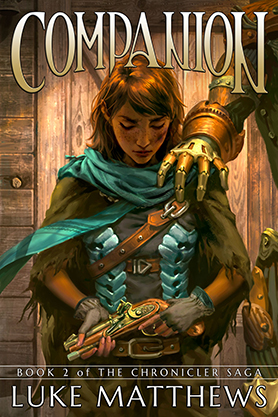I read a few different “bookish” blogs, and have been getting into the world of prose publishing more and more lately for obvious reasons. I mentioned in one of me previous posts how I’ve seen a lot of people in the traditional book world talking about their transition to eBooks.
A recurring theme of these conversations centers around the major e-Reader makers and their DRM. Many people complain that e-Books available on Kindle, iBooks, and Nook are tethered to those devices, citing that you never had to worry about where you could read a book before eBooks. The book-reading community, as it were, seems to believe that eBooks should be an open platform, and available anywhere, all the time.
First off, I think the term DRM is slightly misused here. Most of the time, “DRM” (Digital Rights Managment) is used to describe the bits of code a company embeds in a particular file to prevent it from being copied (pirated). In the case of eBook readers, it’s less about piracy and more about file format: Each eReader has it’s own proprietary format that ties a piece of content to that particular type of device. The idea being that purchasing a book on Kindle ties you to that device and thus, into Amazon’s ecosystem, is apparently the Devil’s work in the eyes of many readers. My perspective as a geek and gamer places this practice under a wildly different lens.
I grew up playing console video games. My first console was a Nintendo Entertainment System and over the intervening 25+ years I’ve owned almost every major video game console. Having been a staunch Nintendo fan for many years – a stand that has now shifted to Playstation – the idea of “console wars” is ingrained in my childhood. There have always been two or three major console manufacturers vying for real estate in the video game landscape, each with their own proprietary format and exclusive titles.
And that’s never been a problem. If you wanted to play a Mario game, you owned a Nintendo. Same with Sonic & Sega. In the modern era, Playstation has Uncharted and Killzone, Xbox has Halo and Gears of War. I can’t plug a Playstation disc into an XBox. I can’t use a Wii U gamepad on my Playstation. Not only are these divisions expected, but accepted.
So why isn’t the same mentality true of eBooks?
We live in a world where hardware technology does not support itself. It’s too expensive to develop and manufacture, so hardware makers are forced to find other avenues of profit in order to make their devices successful. Console manufacturers don’t make money on their machines – Sony is a great example of this, having only recently started turning a profit on PS3 hardware after spending 7 years selling it at a loss – they make money on licensing fees and software sales.
Amazon loses money on Kindles, Barnes & Noble loses money on Nooks. Even Apple doesn’t turn a profit on iPads. These companies make all of their money – and fund the development of better hardware – by making it as convenient as possible for the owners of their hardware to stay within their own ecosystem and not venture outward. Every Kindle book sale funnels 30% (or more) into Amazon’s coffers. Without that money – if everyone were able to buy their eBooks elsewhere and read them on any device – the Kindle ceases to exist.
So why is that a problem? The major eBook hardware manufacturers have their own exclusive titles, but the vast majority of eBooks are “multiplatform” – either available in a universal format like ePub or PDF, or are simply released in multiple formats for the different hardwares. This is virtually the exact same model that has been used by the video game industry ever since hardware competition generated the tagline “Genesis Does What NintenDon’t”.
Once the digital publishing world settles down, it will no longer be an issue: It makes ZERO sense for a 3rd Party publisher – be them a behemoth like Harper Collins or a self-published author – to limit their exposure by sticking to a single platform without a major exclusivity contract that pays them hefty licensing fees. The vast majority of books will filter out to all platforms, just like video games from major publishers like EA and Ubisoft do.
I’m sure that the big eBook manufacturers will continue to have their own exclusive titles – especially in light of Amazon starting their own publishing house(s) – but the idea that hardware exclusivity is some sort of demon seed that’s destroying the integrity of eBook publishing is… well, it’s old fashioned and silly. Bookish folk who are just now encountering the notion of hardware exclusivity need to realize that this is not a new idea, nor is it a problem.
Besides, books have a huge advantage in this scenario: If all I have is a Playstation and a game isn’t available there, there’s no way for me to just buy the game in a standalone package and play it anyway. If a book isn’t available on your e-reader of choice, you can go buy a physical copy and still read it, legitimately, without any problems.

